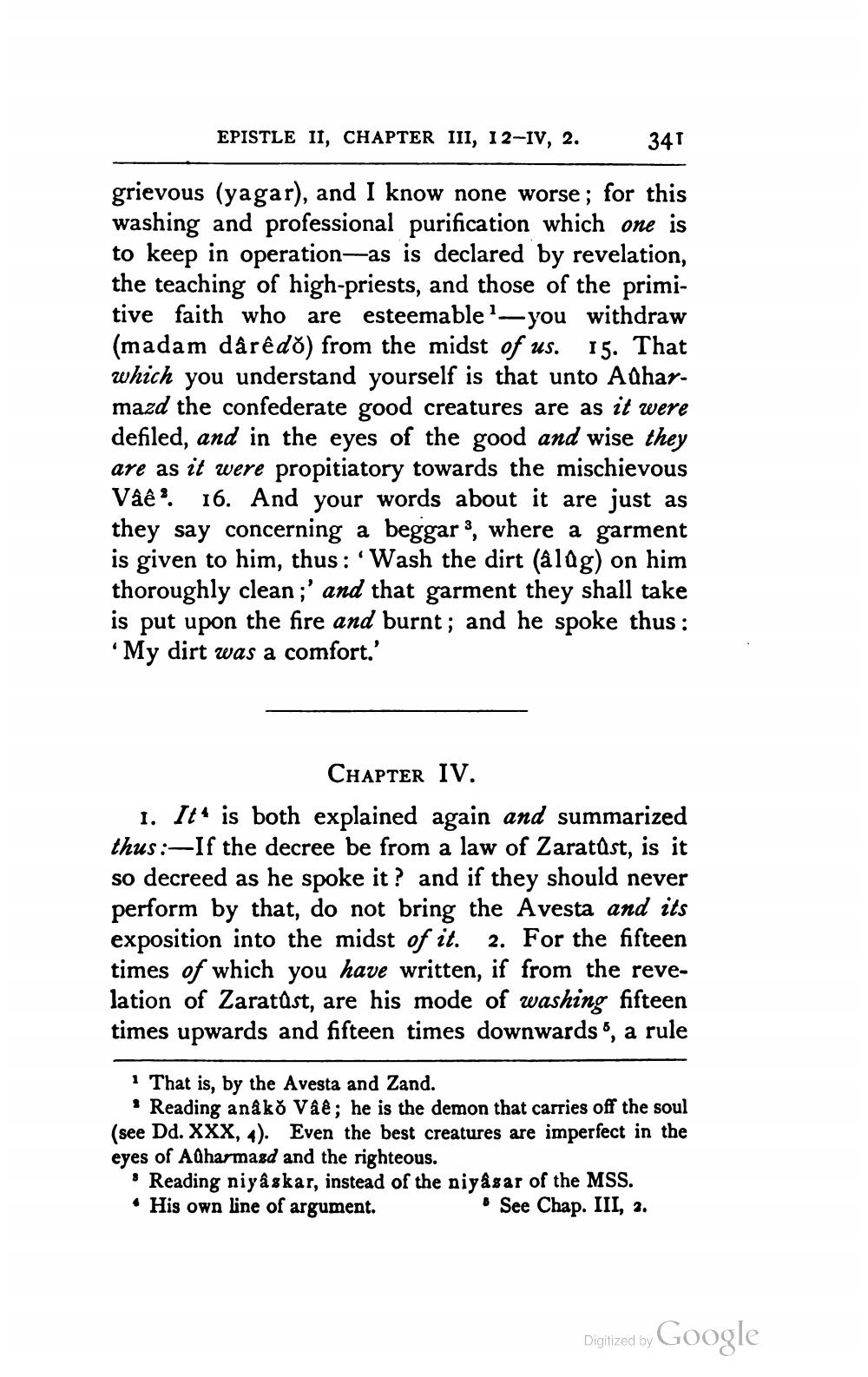________________
EPISTLE II, CHAPTER III, 12-IV, 2.
341
grievous (yagar), and I know none worse; for this washing and professional purification which one is to keep in operation-as is declared by revelation, the teaching of high-priests, and those of the primitive faith who are esteemable ? —you withdraw (madam dârêdo) from the midst of us. 15. That which you understand yourself is that unto Adhar. mazd the confederate good creatures are as it were defiled, and in the eyes of the good and wise they are as it were propitiatory towards the mischievous Vâê?. 16. And your words about it are just as they say concerning a beggar 3, where a garment is given to him, thus: 'Wash the dirt (âlæg) on him thoroughly clean;' and that garment they shall take is put upon the fire and burnt; and he spoke thus: 'My dirt was a comfort.'
CHAPTER IV. 1. It' is both explained again and summarized thus:-If the decree be from a law of Zaratūst, is it so decreed as he spoke it? and if they should never perform by that, do not bring the Avesta and its exposition into the midst of it. 2. For the fifteen times of which you have written, if from the revelation of Zaratūst, are his mode of washing fifteen times upwards and fifteen times downwards", a rule
1 That is, by the Avesta and Zand.
. Reading anakỏ Våe; he is the demon that carries off the soul (see Dd. XXX, 4). Even the best creatures are imperfect in the eyes of Adharmasd and the righteous.
• Reading niyâskar, instead of the niyåsar of the MSS. • His own line of argument.
* See Chap. III, 2.
Digitized by Google




